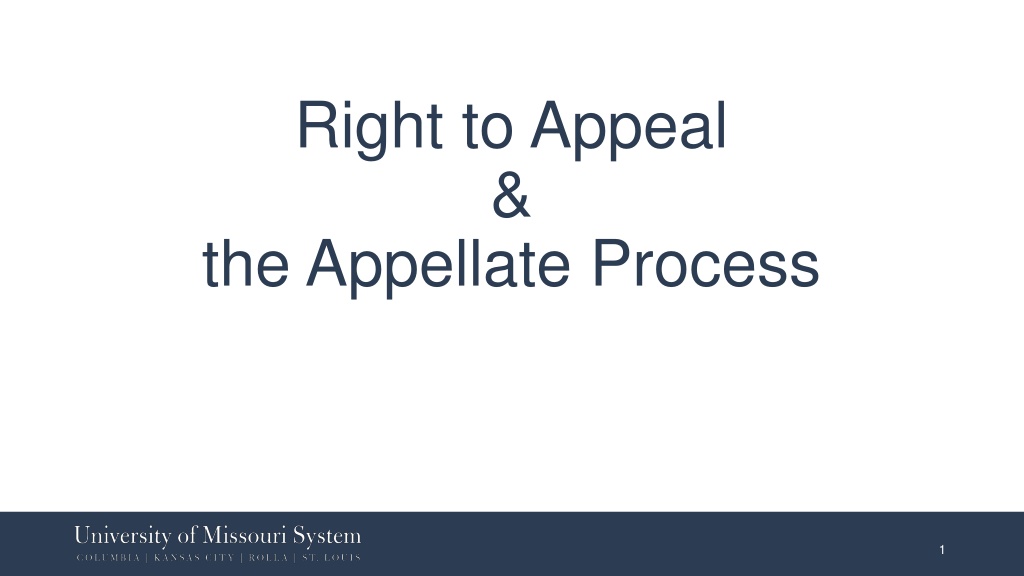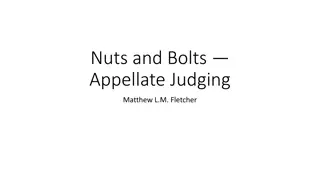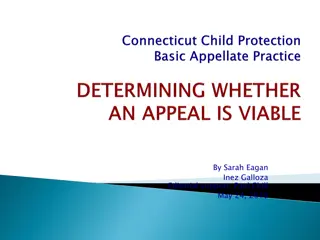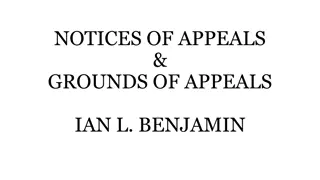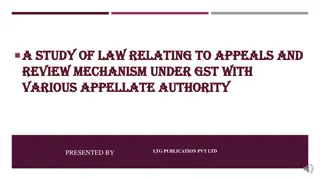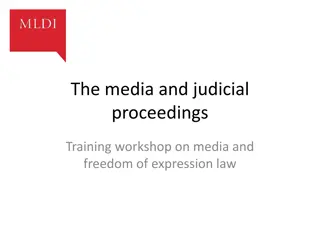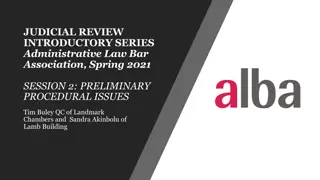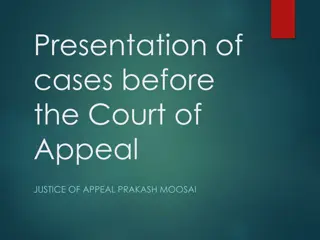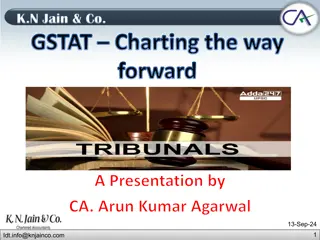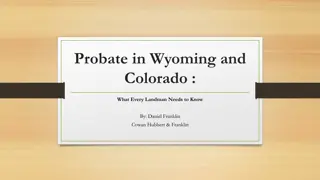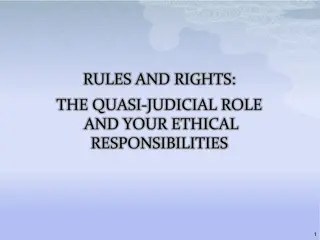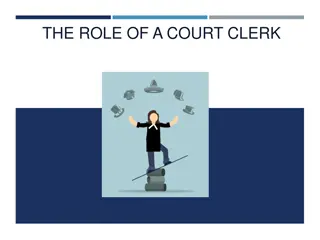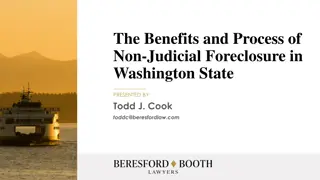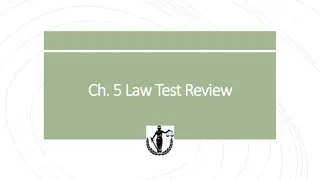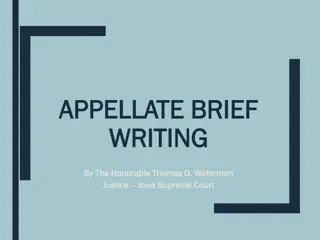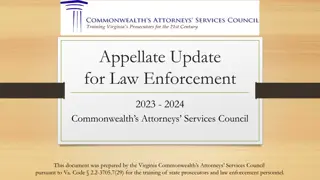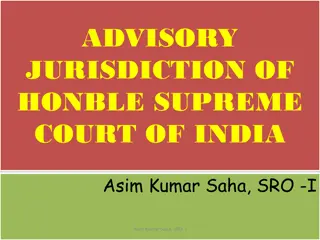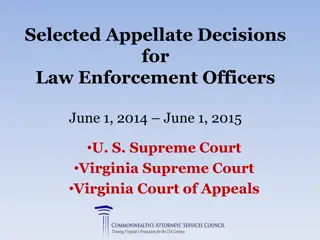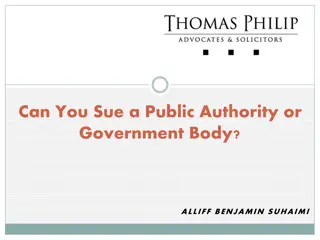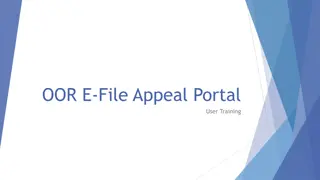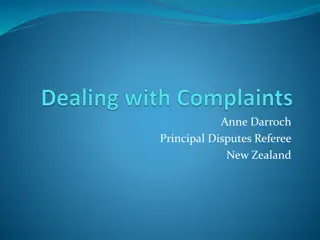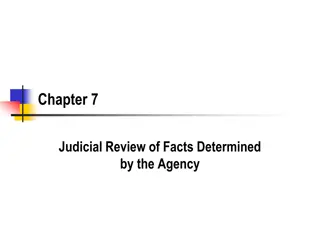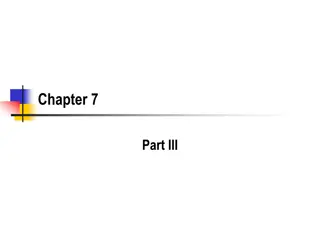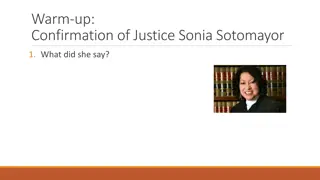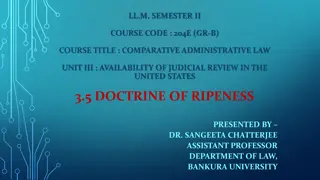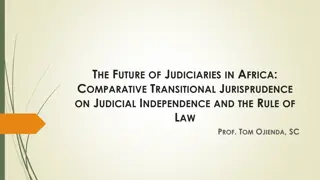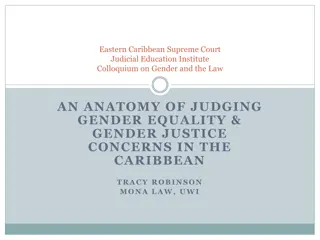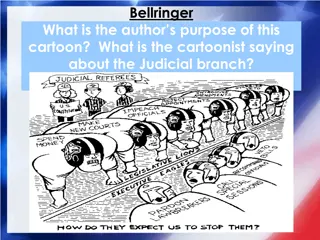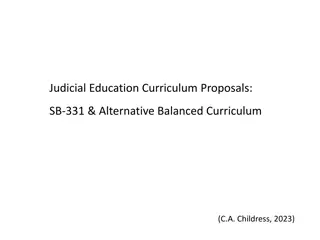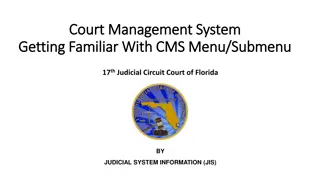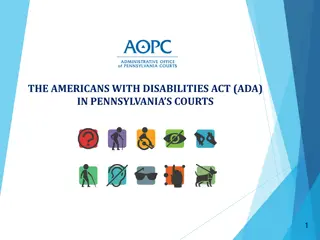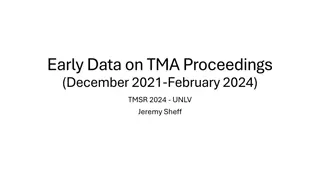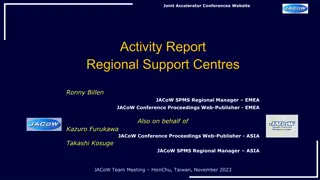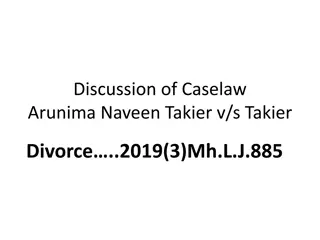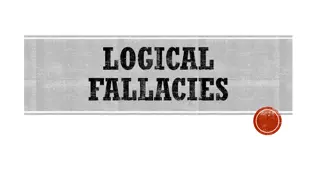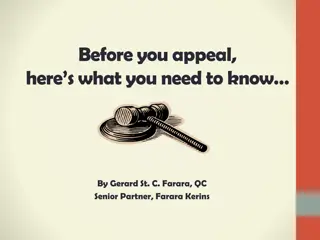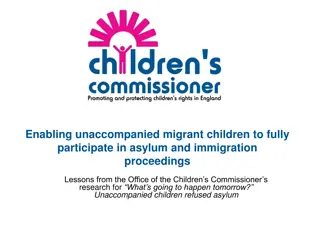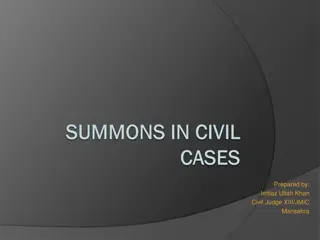Understanding the Right to Appeal and Appellate Process in Judicial Proceedings
This detailed information outlines the procedures and guidelines for the right to appeal and the appellate process in judicial proceedings. It covers important aspects such as recusal of appellate officers, grounds for appeal, limitations on appeals, and the necessary documentation required. Parties involved have the opportunity to appeal decisions based on specified grounds, ensuring a fair and impartial review of outcomes.
Download Presentation

Please find below an Image/Link to download the presentation.
The content on the website is provided AS IS for your information and personal use only. It may not be sold, licensed, or shared on other websites without obtaining consent from the author. Download presentation by click this link. If you encounter any issues during the download, it is possible that the publisher has removed the file from their server.
E N D
Presentation Transcript
Right to Appeal & the Appellate Process 1
Recusal of an Appellate Officer Appellate Officer shall not have a Conflict of Interest or Bias for or against Complainants or Respondents generally or an individual Complainant or Respondent. If an Appellate Officer feels that they have a Conflict of Interest or Bias, or cannot make an objective determination, they must recuse themselves. If recusal occurs, an alternate appointment shall be made by: o Title IX - Chancellor (or Designee) o Equity Student, Student Organization or University Staff Respondents Chancellor (or Designee) o Equity Faculty, UM System Staff or University as Respondent President (or Designee) 2
Both Parties are allowed to appeal: the dismissal of all or part of a Formal Complaint (Title IX), the summary determination ending the process (Equity), or the findings of the Administrative Resolution Decision or Hearing Panel* (Equity or Title IX). Appeals under 600.030; 600.040 and 600.050 *Administrative and Hearing Panel Resolution is not available for Title IX allegations raised in matters that arise out of an Academic Medical Center. 3
Appeals under 600.030, 600.040, and 600.050 Appeals are limited to the following grounds: a. A procedural irregularity that affected the outcome of the matter (e.g., material deviation from established procedure, etc.); b. To consider new evidence that was not reasonably available at the time the determination regarding responsibility or dismissal was made that could affect the outcome of the matter; c. The Title IX Coordinator / Equity (HR) Officer, Investigator(s), or decision-maker(s) had a conflict of interest or bias for or against Complainants or Respondents generally or the individual Complainant or Respondent that affected the outcome of the matter; or d. The sanctions fall outside the range typically imposed for the offense, or for the cumulative conduct record of the Respondent. 4
Appellate Process Appeals are not full re-hearings and are intended to be deferential to original findings. oRecord of the Case (i.e., investigative report, exhibits, recordings) oWritten documentation (i.e., decision-maker(s) determination) oRelevant documentation regarding grounds for appeal Appellate Officer may grant reasonable extensions to deadlines in the appeal process to a Party, with notice provided to the other Party 5
Appellate Process Requests for appeal must be submitted in writing to Appellate Officer within 5 business days of delivery of notice of dismissal or written determination When any Party requests an appeal, opposing party will be notified and receive a copy of the request for appeal Non-appealing Party may file a response to the request for appeal within 5 business days of delivery of notice and copy of request for appeal oSufficient grounds for appeal have not been met, and/or oMerits of the appeal 6
Appellate Process Appellate Officer will review Request for Appeal: o Is request timely? o Is appeal based on articulated bases for appeal? o If viewed in light most favorable to appealing Party, does the appeal state grounds that could result in an adjusted finding or sanction? If answer to these questions is no, appeal will be rejected. Decision to accept or reject an appeal will be made in writing within 15 days; otherwise, deemed accepted. If accepted, decision on appeal must be rendered within 10 business days from accepting request for appeal. If accepted, Appellate Officer must render written decision 7
Appellate Process Written Decision PRACTICE POINTER If you decide to accept appeal, you may combine decision to accept appeal & written decision on appeal into one decision. (will have to be completed within 15 days) 8
Appellate Process Written Decision Describe procedural history of appellate case List bases for appeal If combining acceptance of request for appeal, include rationale for this: Timely Based on appropriate grounds Viewed in light most favorable, could result in adjusted finding or sanction State standard of review (deference to original findings and to what you are confining your review) State conclusion(s) & rationale for decision(s) Close by indicating that the outcome is final; further appeals are not permitted. 9
Appeals under 600.030; 600.040 and 600.050 The decision of the Equity Resolution Appellate Officer is final. 10
Appellate Process Consult with OGC You will be assigned an attorney who did not advise on the case Able to assist you as you work through the record on appeal and in writing your decision Seek logistical assistance from your University s Title IX / Equity Office 11
Questions? 12
